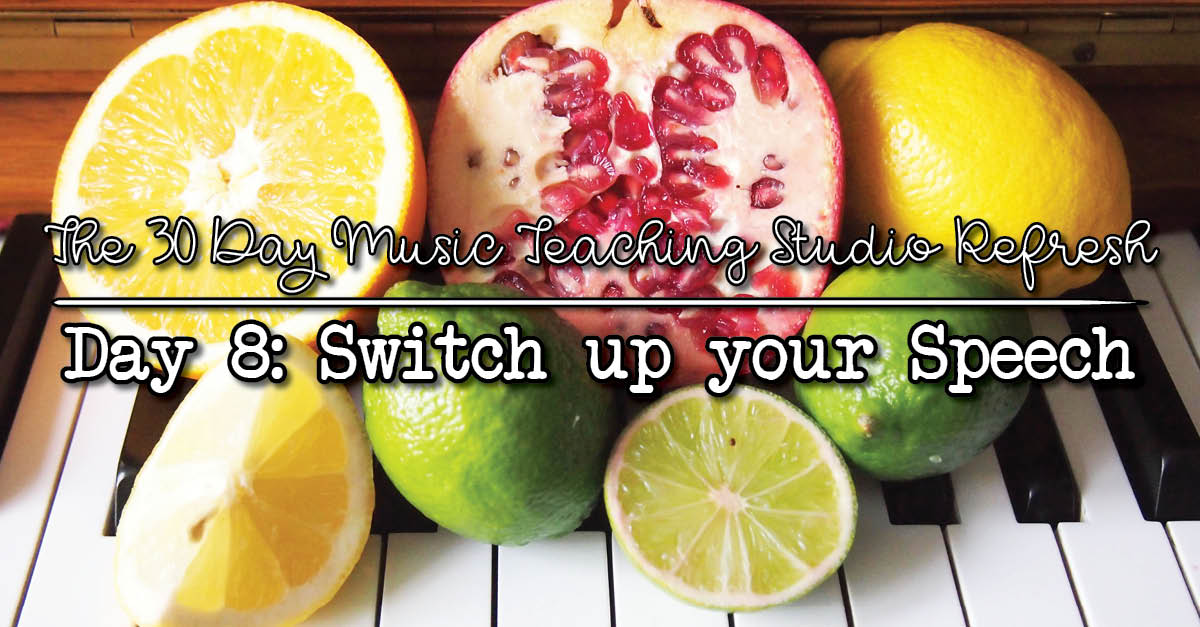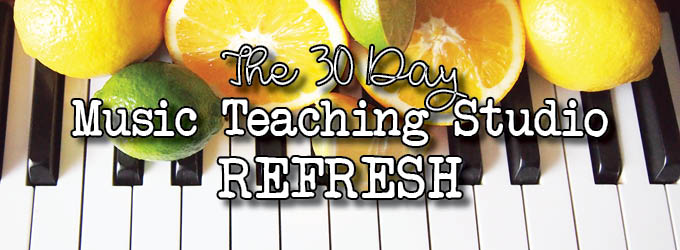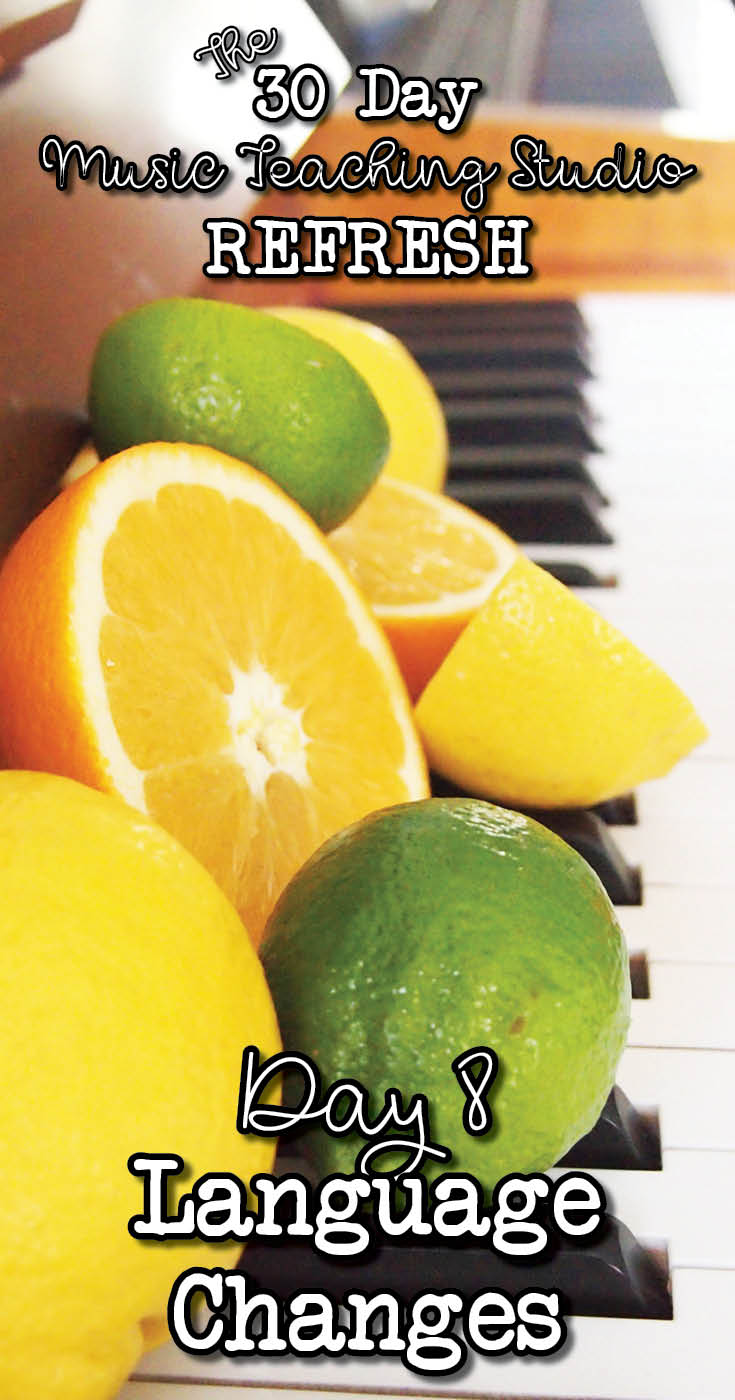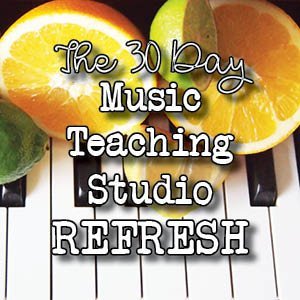Many of you will be back to a regular teaching schedule today after a Winter break. Don’t fret, today’s challenge is an easy one. Simply change the teaching language you’re using for something you say regularly.

The words we choose can have a bigger effect than we realise. Little changes in our phrasing can switch-up a comment and allow students to view it in a different light.
Here are some examples I’ve seen have a big effect in my own teaching.
- But vs. And Now – This is taken from Nick Ambrosino’s book ‘Coffee with Ray’. Instead of saying “That was great but you forgot the dynamics.” say “That was great and now you’re ready to add the dynamics.”
- Did you practice this week? vs. What was your favourite thing you practiced this week? – This shift reframes practice from being a chore that needs to get done to work we do because we love the music we’re creating.
- WOW, you’re so good at that. vs. WOW, you’ve obviously put a lot of work into that. – This is the classic shift that Angela Lee Duckworth made famous with ‘Grit’. We should be rewarding work and determination more than natural talent. This drive students forward as they know they’re capable if they just put in the work.
- Specific Praise vs. General Praise – This is the difference between “Wonderful performance Emma, I loved that.” and “Wonderful use of dynamics and rubato in the third line Emma, that really brought the piece to life for me.”

These changes do take time to become part of your natural speech. It’s not easy to switch out something you’re to used to saying a certain way for different teaching language.
This challenge won’t take you long, but it will require consistent effort during your teaching hours over the next few weeks.
Action Steps
- Pick out just one thing you say again and again in lessons.
- Rephrase it to better serve your students.
- Make a note of your new teaching language and consciously try to incorporate it in your teaching this week.
What positive teaching language are you going to adopt?
Share the speech switch that you’re going to try and make in the Vibrant Music Studio Teachers group or in the comments below. Let’s inspire each other to be more conscious of the teaching language we use and the effect it has on our students.
 Are you getting these posts in your inbox? Sign up for the 30 Day Studio Refresh updates by clicking here. Don’t miss out on any of these studio challenges!
Are you getting these posts in your inbox? Sign up for the 30 Day Studio Refresh updates by clicking here. Don’t miss out on any of these studio challenges!
Vibrant Music Teaching members, you can access this resource inside the VMT library. Not a member yet? Find out more about becoming a member here.
Did you miss any of the posts in the 30 Day Studio Refresh? Check them out by clicking here.


Yes! We get into the habit of saying the same things over and over. My bad habit is- okay, one more time here, and then we end up doing it five more times!
I like to say- that was good, and you can make it even better by adding dynamics here…
Your comment made me giggle Becky! I used to hate it when my teacher did that, and then found myself, years later doing the exact same thing.
I have found a way to make repeating sections fun for all students.If you just tell them to repeat they don’t try very hard., Instead, circle the spot and tell them they fell into the pit of doom. The only way to get out of the pit is to play the section perfectly 3 times in a row. If they play it 2 times and make a mistake, they slip back down to the bottom of the pit and have to start over with 1. This works with everyone of all ages. You should see how hard they concentrate! And instead of assigning measure 5-6 for home practice you assign them the pit of doom.
Love this Debra!
I have a habit of saying “nice” after a student plays something for me. I am working on being more specific and changing up my adjectives a little bit LOL. So instead of “nice”, I might say “great listening” or “I heard some excellent dynamic contrast”.